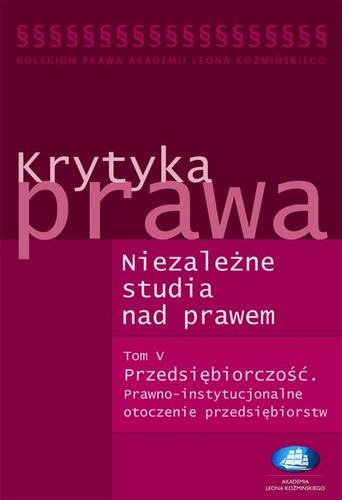La Pologne: la Constitution, la cour constitutionnelle et les inquiétudes de l’opinion internationale
Poland: The constitution, the Constitiutional Tribunal and the anxiety of the international opinion
Author(s): Maria KrukSubject(s): Constitutional Law
Published by: Akademia Leona Koźmińskiego
Keywords: Constitution of the Republic of Poland; Constitutional Court; Polish constitutional law; constitutional crisis in Poland 2015–2016; Act on the Constitutional Court of the Republic of Poland
Summary/Abstract: The events that took place in Poland 2015 and 2016, concerning the actions takenby the new parliamentary majority, including changes in the composition, procedure and legal basis of the Constitutional Court (Constitutional Court Act) werean inspiration to the reflections presented in this paper.Discussed in the paper are three main points of the functioning of the Constitutional Tribunal (CT) in Poland. The frst outlines the genesis of CT, starting withthe period of real socialism (1982). This is quite important as the original conceptof CT, despite the constitutional declaration of independence of the judges, assumedsome degree of parliamentary supervision (i.e. a hegemonic political party). The textalso describes how CT at the time able was to achieve independence and consolidate its authority, illustrating how this body – already included in the judiciary– was constituted in the Constitution of the Republic of Poland in 1997.The second point consists of a short chronicle of events, including the adoptionof the fve successive legal acts (amendments or new Constitutional Court Acts),and the way in which attempts were made, sometimes even by legal tricks, tochange the composition of this court to a politically more favourable and to blockits freedom or to revoke the court’s ruling. With the fnal passing of three newlaws on the organisation and the procedure of the Constitutional Tribunal and thestatus of its judges, whose negative consequences continue to appear. At the sametime, international institutions (the Venice Commission, the European Parliamentand the European Commission) announced their opinions, expressing concernabout the situation in Poland from the point of view of European standards of Rule of Law.The third point touches probably the most important issue – the doctrinal andconstitutional consequences, as well as the problems brought by these events tothe Polish constitutional law science and the constitutional and political practice.
Journal: Krytyka Prawa
- Issue Year: 9/2017
- Issue No: 1
- Page Range: 32-62
- Page Count: 31
- Language: French

